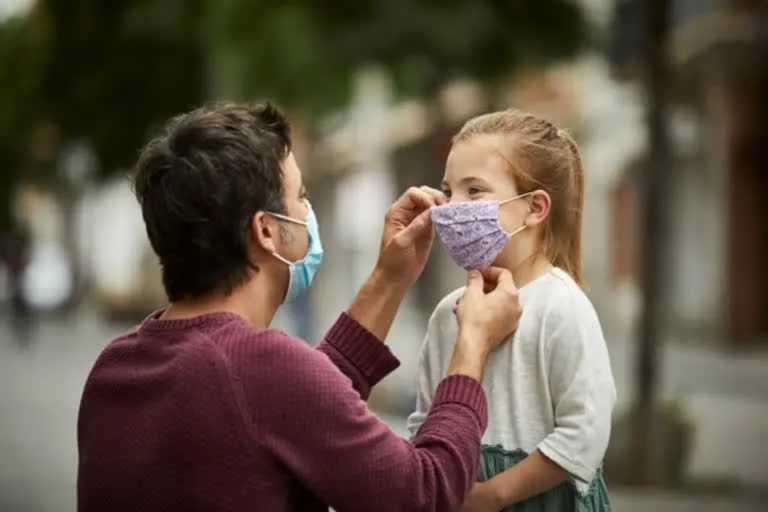Melbourne: Scientists have found that children's immune systems, unlike those of adults, do not remember the virus and do not adapt, and so when exposed to SARS-CoV-2 again, their body still treats it as a new threat, risking reinfection. According to the study, children have largely avoided severe COVID-19 symptoms because they have a strong initial 'innate' immune reaction that quickly defeats the virus.
And now, researchers led by scientists at the Garvan Institute of Medical Research, Australia, have uncovered what this might mean for the immune system, the study published in the journal Clinical Immunology said. "The price that children pay for being so good at getting rid of the virus in the first place is that they don't have the opportunity to develop 'adaptive' memory to protect them the second time they are exposed to the virus," said lead author Tri Phan, Co-Lead of the Precision Immunology Program at Garvan.
"Because children haven't been exposed to many viruses, their immune system is still 'naive'. And because they don't develop memory T cells, they are at risk of getting sick when they become reinfected. "With each new infectious episode as they get older, there is a risk of their T cells becoming 'exhausted' and ineffective, like the T cells in older people. This is why we think it's important to vaccinate children," said Phan.
The immune system has two modes. The innate immune system is the first line of defence, comprising physical barriers such as skin and mucosal surfaces that block viruses from entering. The innate immune system is also composed of cells that make chemicals to signal to other cells and ward off the viruses. The innate immune system does not distinguish between one type of virus or another.
Also read:Antibodies against coronavirus 'coldspots' discovered, may fight future coronaviruses: Study
The second line of defence comprises B and T cells of the adaptive immune system. These cells have specific receptors that can recognise and distinguish different parts of a virus and generate a rapid response to neutralise or limit it. Infants start with an immune system blank slate, which has a much higher proportion of naive T cells, the researchers found. As they move through childhood into adulthood and become exposed to more viruses, the naive T cells are replaced by memory T cells that are locked in to making responses to viruses they have seen before, the study said.
"Over time, as you get infections, your immune system becomes more 'educated', allowing you to make a faster immune response that's tightly matched to the viruses that have infected you before," said Philip Britton, Associate Professor and clinical lead in the study. "Children's immune systems move from relying mostly on the innate system, to needing the adaptive system as a backup as they grow older and are unable to clear viruses as rapidly," said Britton.
In this study, Phan, Britton and colleagues took a deep dive to investigate T cells and cellular immune responses of a small group of children and their household family contacts who had mild or no symptoms from coronavirus (SARS-CoV-2) infection, it said. The researchers sequenced white blood cell samples to analyse T cells in children and adults at the time of acute infection and one month later, the study said.
Because they studied household family contacts who were infected, researchers could control for the impact of genetic or environmental influences on the immune response, the study said. The scientists found that children had many different naive T cells to fight SARS-CoV-2 and made poor memory T cell responses to the virus after they had recovered, whereas the adults had few naive T cells but made good memory T cell responses after recovery. (PTI)
